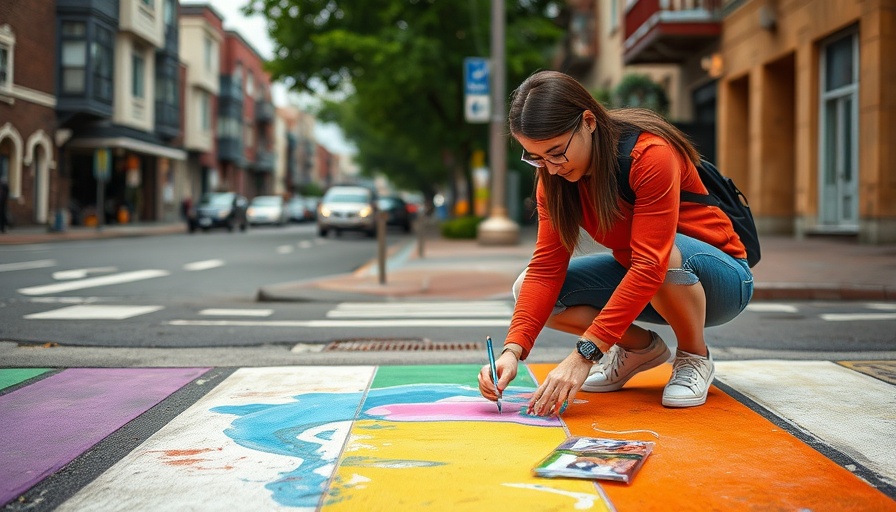
Rising Tensions at the Pulse Memorial: An Ongoing Community Struggle
The Pulse nightclub massacre marked a tragic chapter in Orlando's history, a moment that shaped the landscape of LGBTQ+ rights and community solidarity. Most recently, tensions have reignited around the memorial for the 49 victims, with ongoing protests against the Florida Department of Transportation (FDOT) following an effort to erase the vibrant rainbow crosswalk that commemorated those lives. As we analyze this conflict, it's vital to understand the significance behind these symbolic acts of defiance and what they mean for the community.
In Police on patrol outside Pulse memorial as protesters recolor crosswalk, we explore the tensions surrounding the Pulse memorial and the community's fight for recognition.
Historical Context: The Pulse Nightclub Tragedy
In June 2016, the Orlando community was forever changed by the devastating attack at the Pulse nightclub, which targeted the LGBTQ+ community during a Latin Night event. This attack not only had immediate local implications but also resonated globally, sparking conversations around gun control, hate crimes, and LGBTQ+ rights. The memorial, including the iconic rainbow crosswalk, was created to honor the lives lost and provide a space for remembrance. Each act of vandalism against this memorial is not merely an isolated event; it is an ongoing attack on a community trying to heal.
Protests as a Sign of Resilience
In response to FDOT's decision to paint over the rainbow crosswalk with black and white stripes, local activists like Ziggy Owen have risen to the occasion, demonstrating their commitment to preserving the memory of the victims. Their artistic gestures—repainting the crosswalk with chalk—speak volumes about community identity and resilience. “I feel like I can see this crosswalk a lot better if it’s painted rainbow,” Owen expressed, underscoring the emotional connection many have to this symbol of pride. The protests serve as a reminder that the community will not tolerate attempts to erase their history.
The Role of Local Government and State Standards
The FDOT claims their actions are in accordance with safety standards outlined for traffic control devices, as evidenced by their memo identifying 18 locations in Orlando needing compliance. However, questions arise about the criteria for determining which memorials to preserve and which to disregard. Mayor Buddy Dyer’s previous comments suggest an understanding of the memorial’s importance, yet the state's actions seem to contradict this sentiment. It raises a crucial question: How do we balance public safety with the preservation of cultural symbols?
Community Response and Future Implications
The resilience shown by Orlando residents highlights an ongoing struggle that extends beyond the site of the Pulse nightclub; it speaks to a broader fight for recognition and respect within civic life. With FDOT's decision met with staunch opposition, it is unclear whether future attempts to whitewash the memorial will persist. Protests may continue, ensuring that local voices are heard and that the trauma of the past is acknowledged rather than buried beneath asphalt.
Local Voices: Emotional Reactions and Community Bonds
For many residents, especially those directly affected by the tragedy, the rainbow crosswalk is a vital part of their collective memory and identity. Demonstrations and artistic expressions foster a sense of belonging, a reminder that the community stands together in the face of adversity. The emotional charge surrounding this situation reveals a profound commitment to memory, unity, and justice—a reflection mirrored across many communities grappling with similar issues.
Call to Action: Join the Conversation
The events unfolding at the Pulse memorial prompt not just outrage but also an invitation to engage. If you wish to support the preservation of cultural identities within our roads, attend local meetings and make your voice heard. Community initiatives, local events, and gatherings offer rich opportunities to connect with fellow Orlandoans who share a passion for dignity, remembrance, and progress. Explore various community stories and remember: your voice can help shape the future.
In Police on patrol outside Pulse memorial as protesters recolor crosswalk, we see the community's ongoing battle to maintain a physical representation of love and remembrance against systemic challenges. This story opens the door for deeper discussions about cultural respect, community resilience, and the rights of citizens to memorialize tragedies in ways that resonate with societal values.
 Add Row
Add Row  Add
Add 




Write A Comment